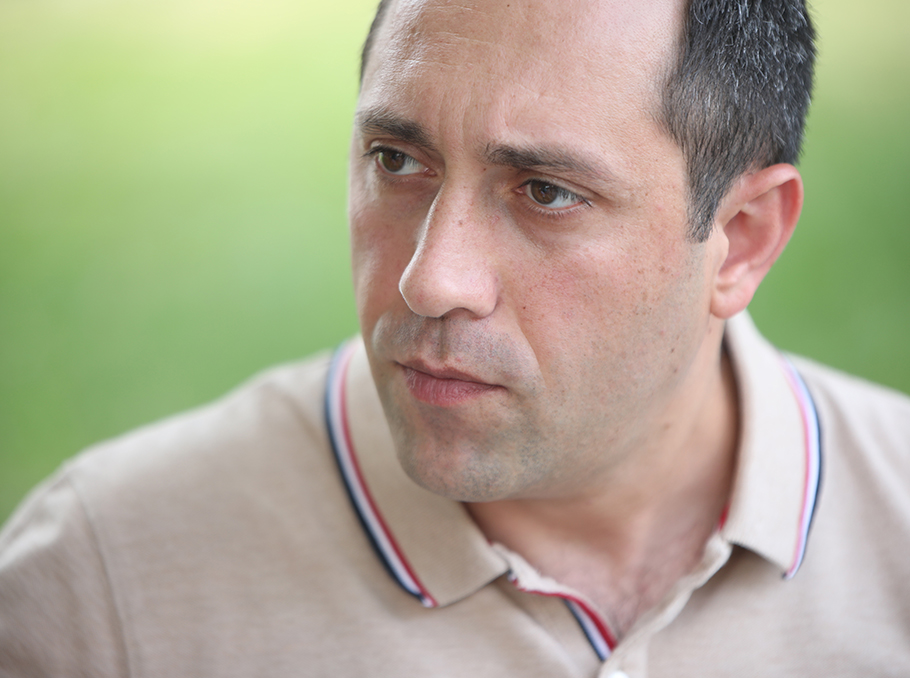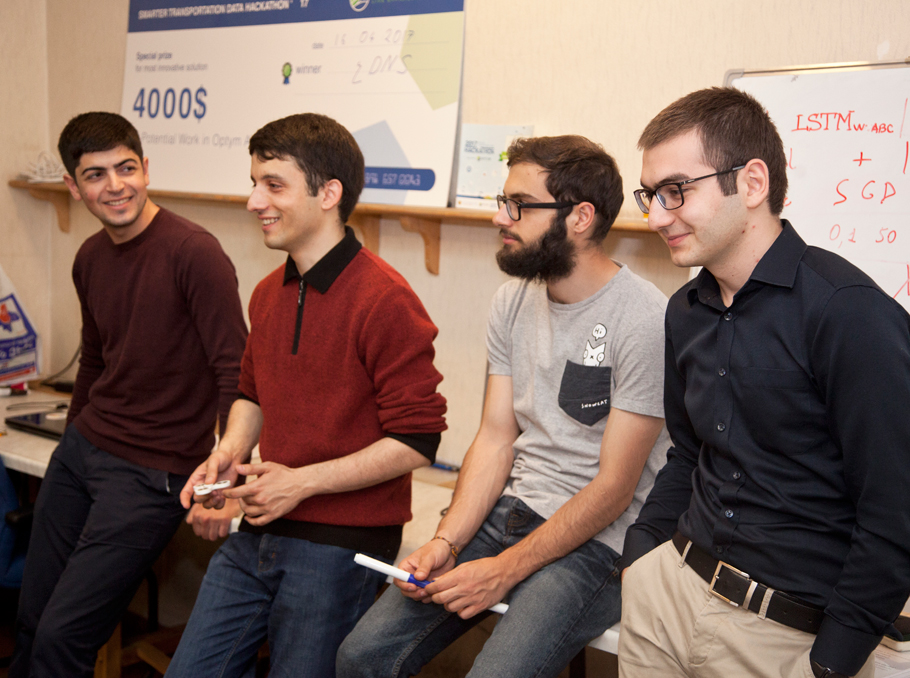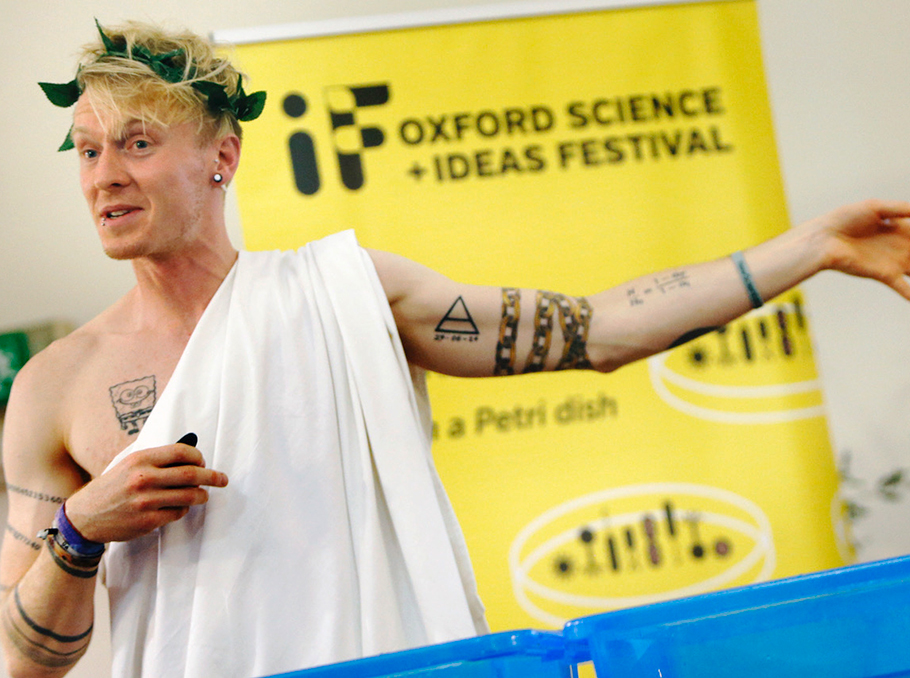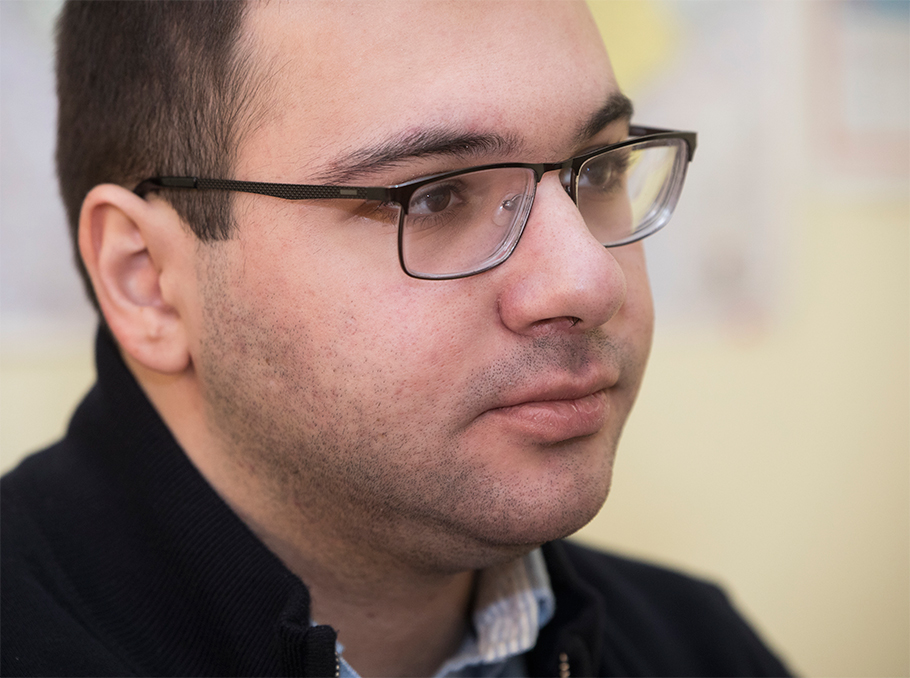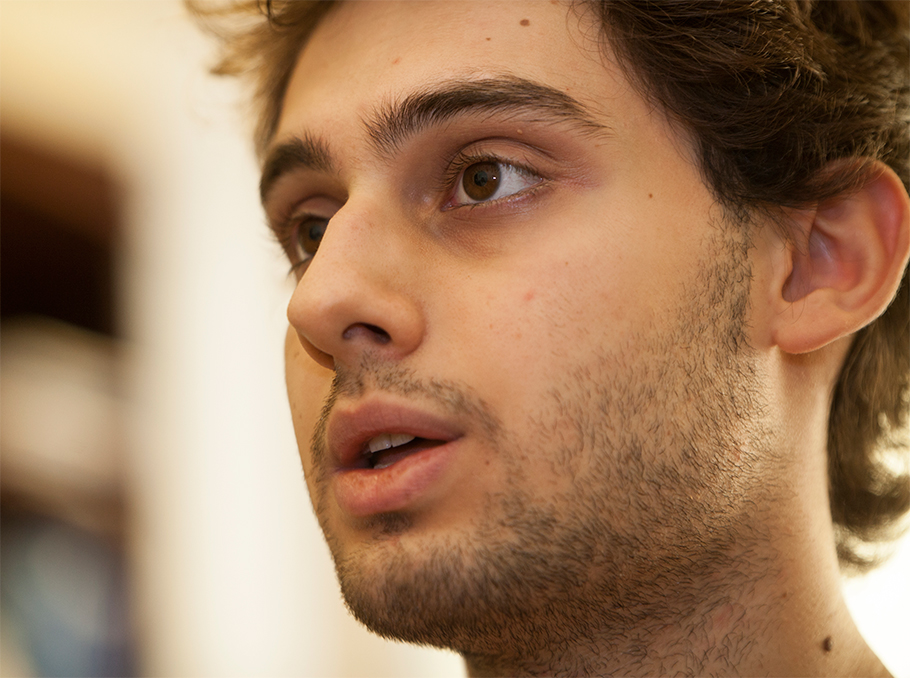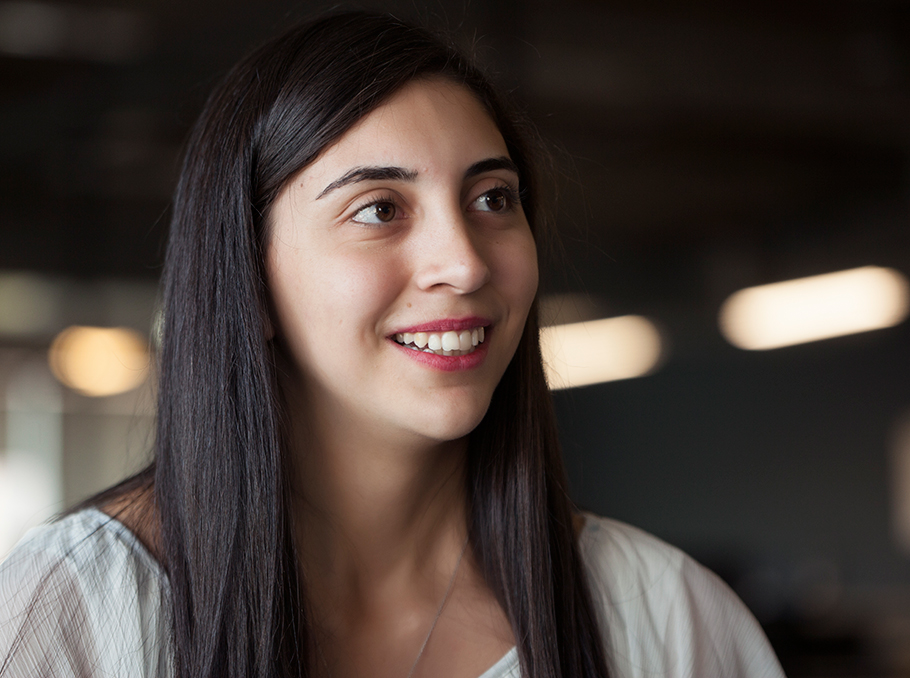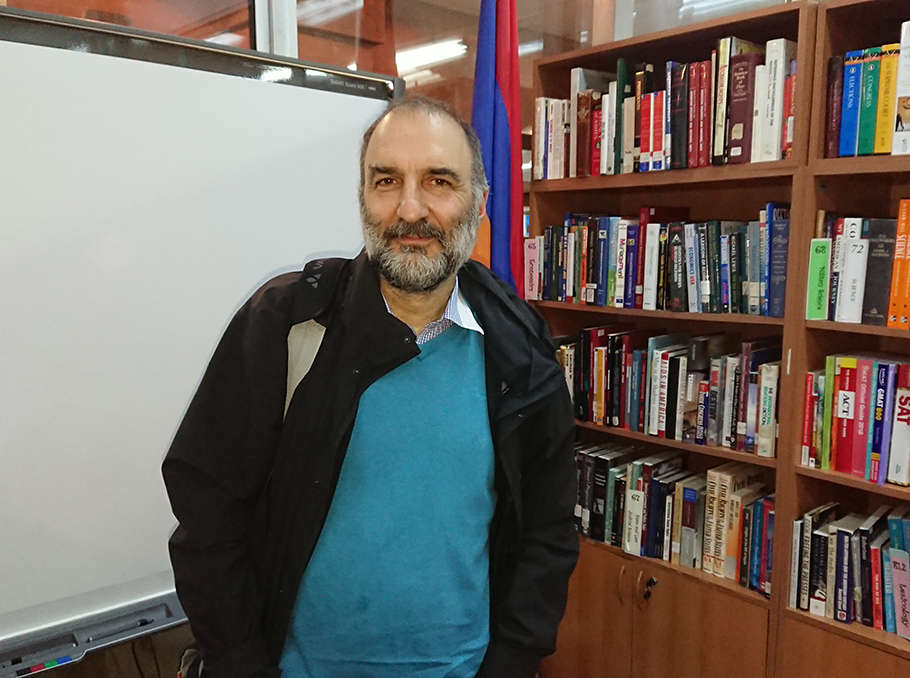Mathematics is the engine of love, justice and progress. That is the definition given to the science of structures, sequences and relations by those who pursue it professionally.
Mediamax and Foundation for Armenian Science and Technology (FAST) jointly present the MathArt project that tells the stories of talented mathematicians from Armenia and their work. Mathematics holds key importance in the modern world and we hope that MathArt project will inspire young Armenians to choose a career in mathematics.
***
Gor Vardanyan’s future was decided in the 4th grade, when the mathematics teacher invited his parents to a meeting at school. Gor’s mother initially thought he had gotten into trouble, but the teacher had something else to say: he suggested taking Gor to the Mathematics Olympiad in Gyumri.
“Although I was always good at math, frankly speaking, I was not a diligent student until the 4th grade and I was really surprised by that offer. I won the town Olympiad. It encouraged me a lot. Afterwards, I participated in many other similar contests and my achievements were a constant motivator. We had a variety of books with math problems, and my brother and I were obsessed with them. It was in the 1990s, in Gyumri. We lived in a container (Many families in Gyumri were given temporary accommodation in repurposed shipping containers after the 1988 earthquake – Mediamax), there was no electricity, and we had nothing to do, so we spent free time on solving mathematical problems. I wanted to become a scientist since the 4th or 5th grade,” Gor Vardanyan tells, adding that in present day he encourages his children to take part in Olympiads.
Vardanyan has made a name for himself with two successful startups, founding Fimetech and co-founding Chessify.
The first life lessons
I faced a difficult choice when I applied to the Yerevan State University (YSU). I could either pass the interview and get a scholarship at the Mathematics or Physics Department or pass exams to study at the Department of Informatics and Applied Mathematics. I chose the second option. It even caused a dispute at home: my family was worried I couldn’t get enough points for a scholarship at Informatics Department, as I didn’t go to a private tutor. It was not an acceptable option, because we could not pay for higher education. I would not be moved, though, I took the risk and got admitted to the department of my choice with the highest possible amount of points for the two exams.
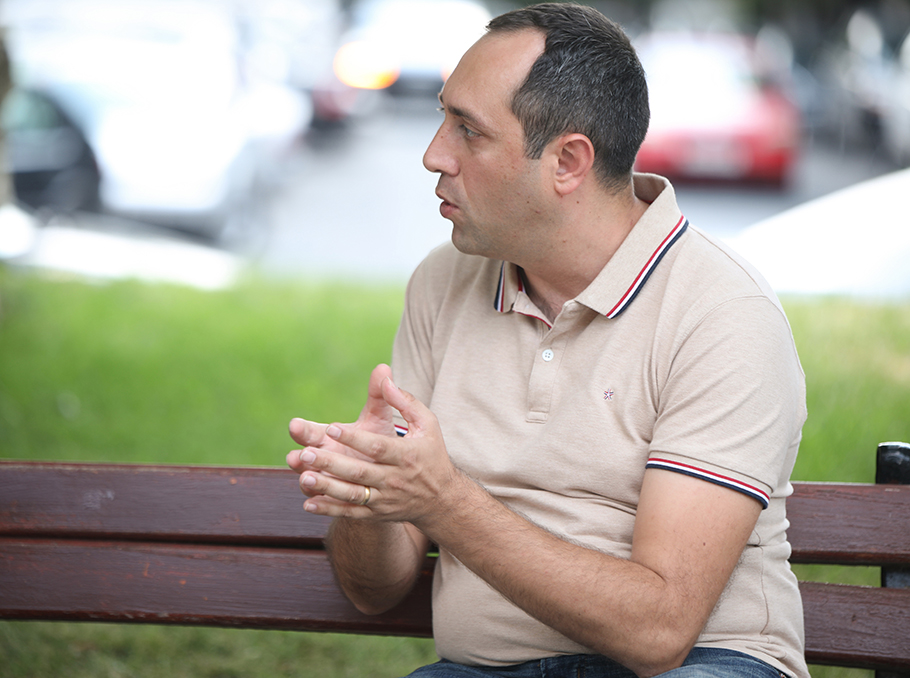 Gor Vardanyan
Gor Vardanyan Photo: Mediamax
I was a good student, but the curriculum was not intense, which was rather disappointing. At that time I set a goal for myself to change the quality of university education so that students would not have time to do something else during the lessons. Everything changed when Stepan Markosyan became my supervisor for the Master’s degree studies. He taught me so much as a human being too, and it is partly his “fault” that I chose not to pursue a career in science. When I asked him to supervise my postgraduate studies as well, he said: “No, you should work in an applied field. Only rich people, people without financial issues should do science in Armenia. Your first salary will be larger than what most professors earn here.” My family had serious financial issues, so I did choose to work in applied field and my supervisor’s prediction did come true. His words really affected me and influenced some important decisions on supporting the education and science sector that I made later in life.
A successful business based on math
I was not particularly fond of coding. Mathematics was more interesting for me. My first work was on EDA (Electronic design automation). I wrote it in 2005, when I was hired by Instigate.
In 2010-2011 I worked on a startup in Silicon Valley, and when I decided to return to Armenia, I founded Fimetech that outsources projects abroad. Our team is now comprised of 25 people.
My family are good at chess and fond of it too. My brother is a professional chess player, my children take chess classes, so I decided to do something in that area. That is how Chessify was born in 2017. It is a combination of chess and AI that enables the users to digitize photos of moves pictured in chess textbooks and try them out, visualize the next moves, etc.
Personal responsibility
Mathematics has helped me a lot on the way. After the return to Armenia, I felt it was my personal responsibility to support the education system, so that Armenia has at least one university where my son could study instead of going to another country for education. Whose responsibility is it to secure a good education system in our country? The country’s, of course, but we are the country. Armenia is us.
After graduating I thought that yes, I didn’t become a scientist, but in the future, I had to do what I could so that boys and girls in Armenia would get that opportunity and were not forced to work in industry to earn for a living.
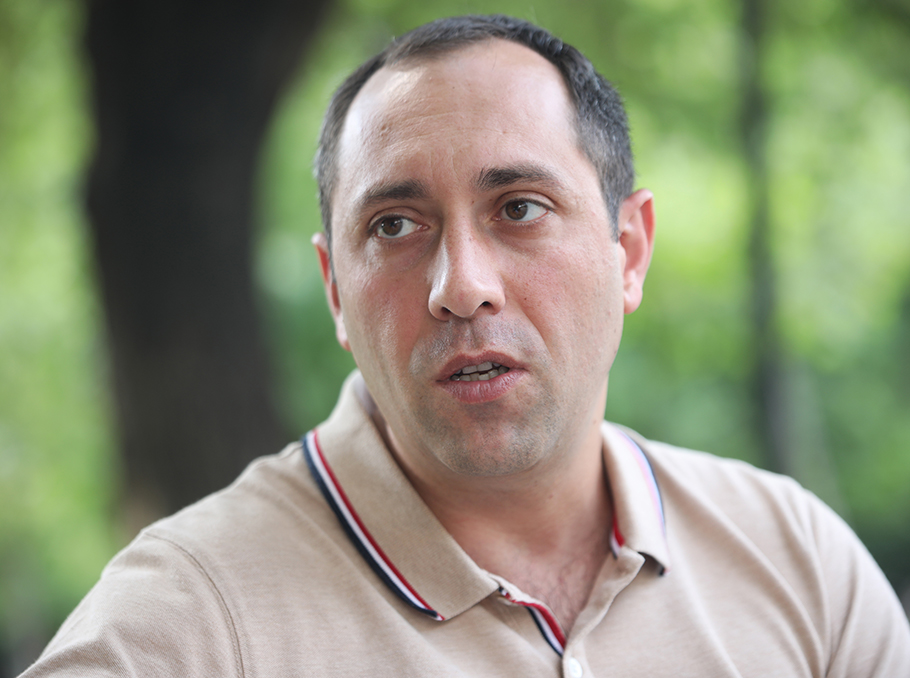 Gor Vardanyan
Gor Vardanyan Photo: Mediamax
I taught discrete mathematics at YSU for 2 years and mathematics teaching at Armenian-Russian (Slavonic) University for 6 years. Now I am involved in several educational projects and I always try to make time and resources for them.
I can’t complain about mathematics taught at school. My sons attend a public school and math is taught at a decent level there. There are some issues, but most textbooks are fine. The problems being in the university, where mathematics is not up-to-date and there is a lack of good experts and young specialists. If I had to change something, I would start with universities, because the knowledge students receive in the school is enough for them to get very high grades in an average university.
The Armenian future of AI
Armenia, like the whole world, is currently very invested in data science, machine learning and artificial intelligence in general. IT has grown impressively since the 1990s. The main area used to be EDA, which made just around 3% of IT globally. Armenia was really good at this IT field that held a small niche in the sector as compared to web or mobile technologies. I asked myself back then why it was that way, and the answer is probably that mathematics is deeply rooted in Armenia. EDA is closely connected to the areas in math that Armenia excels in since the Soviet times. Any company and individual in that field knows about Armenia.
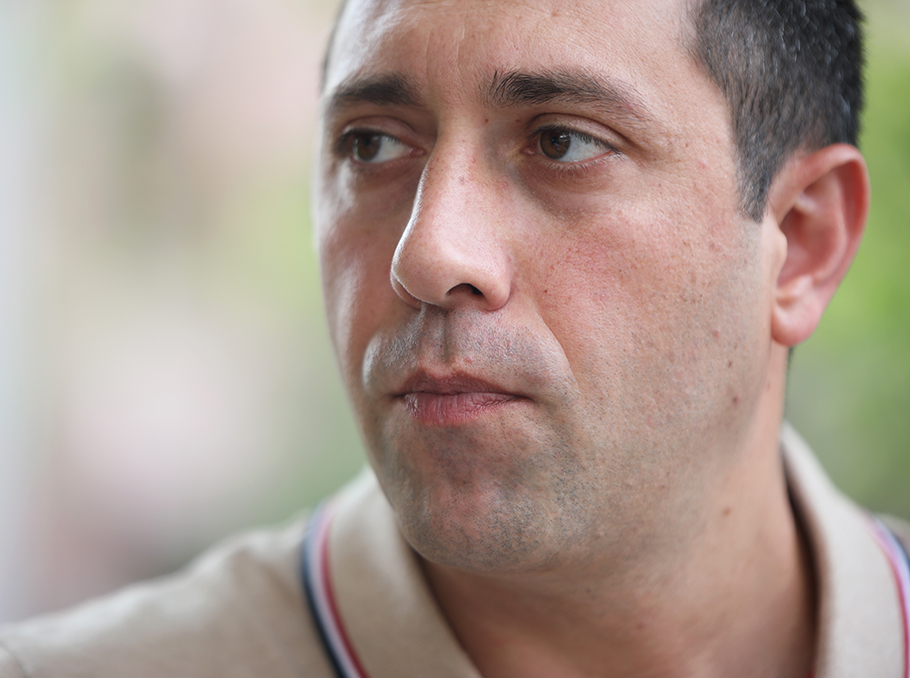
Photo: Mediamax
Now the world is developing artificial intelligence, and we have a good impetus to reap the fruit, so to say, because we have the required knowledge and the AI market is incomparably larger than that of EDA. If we achieve notable success in AI, it would mean huge progress for the country. Our startups are a good example. When one of them raises USD 100m or USD 1bn, there will be a big boom in Armenia. That is why we have to advance our universities in the right direction. Some Armenian universities have data science and machine learning programs and they should prepare good experts and scientists.
We have the YerevaNN AI lab too. I serve as member of the board of trustees of YerevaNN foundation. It is the only laboratory in Armenia that works on AI at the scientific level. Unfortunately, the state does not provide adequate funding for this field. That support is extremely important for education and science, and we need to change the current approach.
FAST Foundation is the general partner of the project 
Marie Taryan
Photos by Emin Aristakesyan









